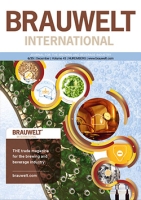Craft breweries – those brewing beer by hand on a small scale – have continued to exhibit unmitigated growth, a fact confirmed at the Craft Brewers Conference, which took place from March 23rd to 26th at the Hilton San Francisco Union Square. The annual conference is organized by the Brewers’ Association based in Boulder, Colorado, USA. With 3900 attending the conference this year, the Hilton’s capacity was stretched to the limit.
If the recent scramble for Mr Castel’s brewing empire and the astronomical offers for Ethiopia’s state-owned breweries are anything to go by, the African continent has become the brewing industry’s last frontier. Castel, Heineken, SABMiller and Diageo all stand to profit from Africa’s growth – both in beer volumes and profits. Over the past decade Africa’s economy has boomed thanks to high commodity prices. Add to that relative political stability and a burgeoning middle class – a third of Africans now have between USD 2 and USD 20 to spend a day, says The African Development Bank in a recent and fairly bullish report – and you will understand why many of Africa’s erstwhile monopoly beer markets have fallen one by one as the world’s major brewers have begun to enter each others’ territories.
On 9 March 2011 numerous leading figures from politics and academia attended the opening ceremony of Zhujiang Beer International Research Center of Zhujiang brewery in Guangzhou, Guangdong Province. This opening marked the second stage of a cooperation with the Institute of Brewing and Beverage Technology of Technische Universität München/Center of Life and Food Sciences, Weihenstephan. This way, Zhujiang brewery hopes to become innovation leader of the Chinese brewing industry.
Although the international brewing scene holds a great number of beer tastings each year, this competition is special. Not only has it been around since its launch in 1886 – this year being its 125th anniversary –, its objectives and the criteria of the tasting also set it apart from similar events, since it focuses exclusively on the consumers’ opinion. After a six-year interval, the judging for the Brewing Industry International Awards 2011 took place at the National Brewery Centre in Burton upon Trend from 9 – 11 February. The event was organised by The Brewing, Food & Beverage Industry Suppliers Association (BfBi).
At some point in his or her career, every brewer will come across the abbreviations ASBC and MBAA. Nevertheless only a few of them will really know the organizations behind these abbreviations, although both the American Society of Brewing Chemists and the Master Brewers Association of the Americas are established institutions of high standing, which offer a wide range of opportunities to their members.
The International PackTech India and drink technology India 2010 organized respectively by Messe Duesseldorf GmbH, Messe Duesseldorf India, Messe Muenchen GmbH and MMI India Pvt. Ltd, concluded on a high note with great results. The collaboration between the organizers of the concurrent exhibitions has proven to be a winning synergy. Both exhibitions exceeded expectations in terms of quantity and quality of exhibitors and visitors. The exhibitions drew the combined participation of 201 exhibiting companies from 22 countries.
The small-scale brewing system BrauEule®, originally developed with homebrewers in mind, has been on the market since July 1, 2003. The system is automated, making it possible to produce up to 40 liters of wort with minimal effort. It didn’t take long for commercial breweries to discover BrauEule® and its possibilities for training and recipe development.
Bavaria S.A. is investing several million euros in its brewing facilities in Colombia. The SABMiller subsidiary relies on state-of-the-art technology “made in Germany” and has signed an order with GEA Brewery Systems for optimizations and upgrades in the Bavaria breweries in Barranquilla, Medellín and Tocancipa near Bogotá.
This year’s World Brewing Summit in Providence, Rhode Island, was jointly organised by the American brewers’ associations ASBC (American Society of Brewing Chemists) and MBAA (The Master Brewers Association of the Americas) who offered an extensive schedule over the six days of the convention. The ASBC meeting “The Science of Beer” was rather scientifically oriented and featured 42 papers in 11 sessions, 32 posters and 8 workshops. It took place from 15 to 18 June and was followed by the MBAA convention from 18 – 20 June with its more practical approach apparent in 37 papers and 38 posters.


